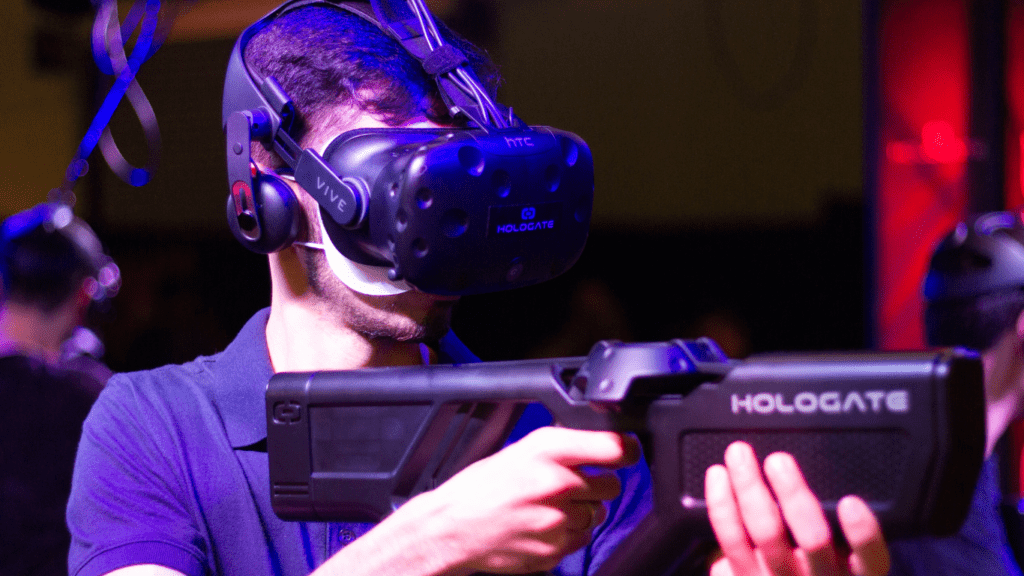The Current State of Esports Betting
Esports betting has grown exponentially, with millions of fans placing bets on their favorite teams and players each year. Data from Statista revealed over $14 billion wagered globally on esports in 2020. The popularity of esports betting spans major titles like “League of Legends,” “Dota 2,” and “Counter-Strike: Global Offensive.” Sportsbooks now offer specialized esports sections, making it easy for bettors to access live matches, odds, and statistics.
Regulatory landscapes vary by region, impacting the legality and operations of esports betting platforms. For example, while it’s widely accepted in regions like Europe, restrictions apply in the United States. States like New Jersey and Nevada have legalized esports betting, while others are still evaluating their positions.
Technological advancements shape the esports betting industry, with AI and machine learning improving odds accuracy and personalized recommendations. Blockchain technology ensures transparency and security in transactions. Platforms incorporate live streaming and in-play betting, allowing bettors to place wagers in real-time as matches unfold.
User demographics for esports betting are young, digitally savvy individuals, typically between 18-34 years old, who engage with digital content. This demographic shift has led betting platforms to integrate social features like:
- leaderboards
- community chats
- virtual rewards
enhancing user interaction and retention.
These factors, combined with the increasing mainstream acceptance of esports, create a dynamic and rapidly evolving landscape for the betting community.
Emerging Technologies
Esports betting is undergoing a transformation thanks to innovative technologies that enhance user experience and security. Key advancements include blockchain, augmented and virtual reality, and artificial intelligence.
Blockchain and Cryptocurrencies
Utilizing blockchain technology in esports betting ensures transparent, secure transactions. Blockchain decentralizes data storage, preventing tampering or fraud. Cryptocurrency integration allows for faster, fee-free deposits and withdrawals. For example, Bitcoin and Ethereum have become popular among bettors seeking anonymity and speed. Smart contracts can automate payouts, guaranteeing their execution based on pre-defined conditions.
Augmented and Virtual Reality
Augmented (AR) and virtual reality (VR) bring immersive experiences to esports bettors. AR overlays digital elements on the real world, enhancing live viewing with real-time stats or player info. VR creates a fully virtual environment, letting users ‘attend’ tournaments or events from home. For instance, using VR headsets, bettors can sit courtside at an esports match, making the experience interactive and engaging.
Artificial Intelligence in Betting
Artificial intelligence (AI) is revolutionizing betting by analyzing vast data sets to generate accurate predictions. AI algorithms evaluate player performance, team strategies, and historical data to optimize betting odds. Machine learning models continually improve, providing bettors with reliable insights. Tools like chatbots offer personalized betting advice, guiding users to make informed decisions based on real-time data.
Legal and Regulatory Landscape

The legal landscape of esports betting varies widely across different regions. Understanding these variances is crucial for stakeholders.
Regional Differences
Esports betting regulations vary significantly by region. In the United States, sports betting, including esports, is governed by state-level legislation. States like New Jersey have legalized and regulated esports betting, while others maintain restrictive laws. Conversely, the United Kingdom has a well-established regulatory framework under the UK Gambling Commission, covering all betting activities, including esports. Meanwhile, countries in Asia display a spectrum of regulations; South Korea enforces strict control, while Japan has gradually relaxed restrictions. These differences create unique challenges and opportunities for operators.
Future Projections
Looking ahead, regulatory frameworks will likely evolve to accommodate the growing esports betting market. As more jurisdictions recognize the potential economic benefits, expect more regions to develop robust, standardized regulations. Blockchain technology might also become a key component, offering transparent, tamper-proof systems that could gain regulatory approval. The integration of artificial intelligence could streamline compliance processes, making them more efficient for operators and regulators alike. This evolution will shape a more consistent global regulatory landscape, enhancing the esports betting experience for users while ensuring legal compliance.
Market Growth and Potential
The esports betting market has shown impressive growth, fueled by several factors driving its expansion and attracting significant investments. Being aware of these key dynamics offers valuable insights into its future direction.
Key Market Drivers
- Rising Popularity of Esports: Esports viewership has surged, with platforms like Twitch and YouTube Gaming drawing millions of viewers. Statista reports that esports viewership is expected to reach 577 million by 2024.
- Technological Advancements: Technologies like blockchain provide transparency in transactions, while artificial intelligence enhances user experience through personalized recommendations. These tech advancements bolster user trust and engagement.
- Demographic Shifts: Younger demographics, particularly those aged 18-34, are increasingly interested in esports betting. New Zoo’s 2021 Global Esports and Live Streaming Market Report revealed that 71% of esports enthusiasts fall within this age group, highlighting a ripe market for betting activities.
- Startups and New Platforms: The market is ripe for new entrants. Startups focusing on decentralized betting platforms and real-time analytics attract venture capital. Esports Entertainment Group and other companies have successfully raised significant funds.
- Partnerships and Sponsorships: Partnerships between traditional betting companies and esports organizations are on the rise. In 2020, Betway renewed its sponsorship with the professional team Ninjas in Pyjamas, reflecting a growing trend in strategic alliances.
- Technological Integration: Investments in AI, big data, and VR/AR technologies are creating more immersive and secure betting environments. Companies developing these technologies, such as Unikrn, offer promising investment prospects.
Understanding these drivers and opportunities provides a clearer outlook on the future trajectory of the esports betting market, indicating robust growth and high investment potential.
Integration with Traditional Sports Betting
Esports betting is increasingly merging with traditional sports betting, creating a seamless experience for bettors.
Cross-Platform Opportunities
Cross-platform opportunities connect traditional sports betting with esports betting, providing users with a unified betting environment. Bookmakers now offer both esports and sports markets on the same platforms, facilitating bettor engagement. For example, sportsbooks like Bet365 and DraftKings feature comprehensive esports sections alongside traditional sports. This integration enhances user convenience and broadens the betting portfolio, attracting a diverse audience. Bettors benefit from a streamlined experience, leveraging the same account and digital wallet for multiple betting types.
Shared Audiences and Consumer Behavior
Shared audiences in traditional sports and esports betting exhibit similar behavior patterns, driven by a passion for competitive events and strategic wagering. Both audiences are tech-savvy, value engaging content, and prefer mobile-friendly platforms. Data shows that younger demographics dominate esports and are gradually entering traditional sports betting. These users demand interactive features, such as live streaming and in-play betting, increasing engagement levels. By recognizing these commonalities, platforms can tailor marketing strategies to cater to both segments, optimizing user acquisition and retention.
Social and Economic Impacts
Esports betting influences both social and economic dimensions, shaping how individuals engage with content and bringing significant changes to industry dynamics.
Gamification and Engagement
Gamification transforms the esports betting experience, making it more interactive. Platforms incorporate elements like leaderboards, achievements, and rewards to enhance user engagement. For example, Unikrn offers gamified betting with a comprehensive ecosystem. Blockchain technology also plays a role by allowing transparent reward systems, encouraging user trust and participation.
Ethical Considerations
The rapid growth of esports betting raises ethical concerns. Issues such as gambling addiction, underage betting, and match-fixing need addressing. Regulatory bodies, if they aim to protect vulnerable groups, must enforce stringent policies. Companies like ESIC (Esports Integrity Coalition) focus on maintaining integrity in esports through systematic monitoring and action against unethical practices. Effective regulation, combined with industry commitment, can mitigate these ethical challenges.


 Jared Dale played a key role in the development of Hype Gamble Match, bringing his extensive expertise in sports betting and online gambling platforms. His strategic insights into market trends and user engagement helped shape the content and structure of the platform, ensuring that bettors have access to accurate, timely, and actionable information. Jared’s focus on integrating expert advice with user-friendly design has significantly contributed to the platform’s growth and success in delivering top-notch betting resources.
Jared Dale played a key role in the development of Hype Gamble Match, bringing his extensive expertise in sports betting and online gambling platforms. His strategic insights into market trends and user engagement helped shape the content and structure of the platform, ensuring that bettors have access to accurate, timely, and actionable information. Jared’s focus on integrating expert advice with user-friendly design has significantly contributed to the platform’s growth and success in delivering top-notch betting resources.